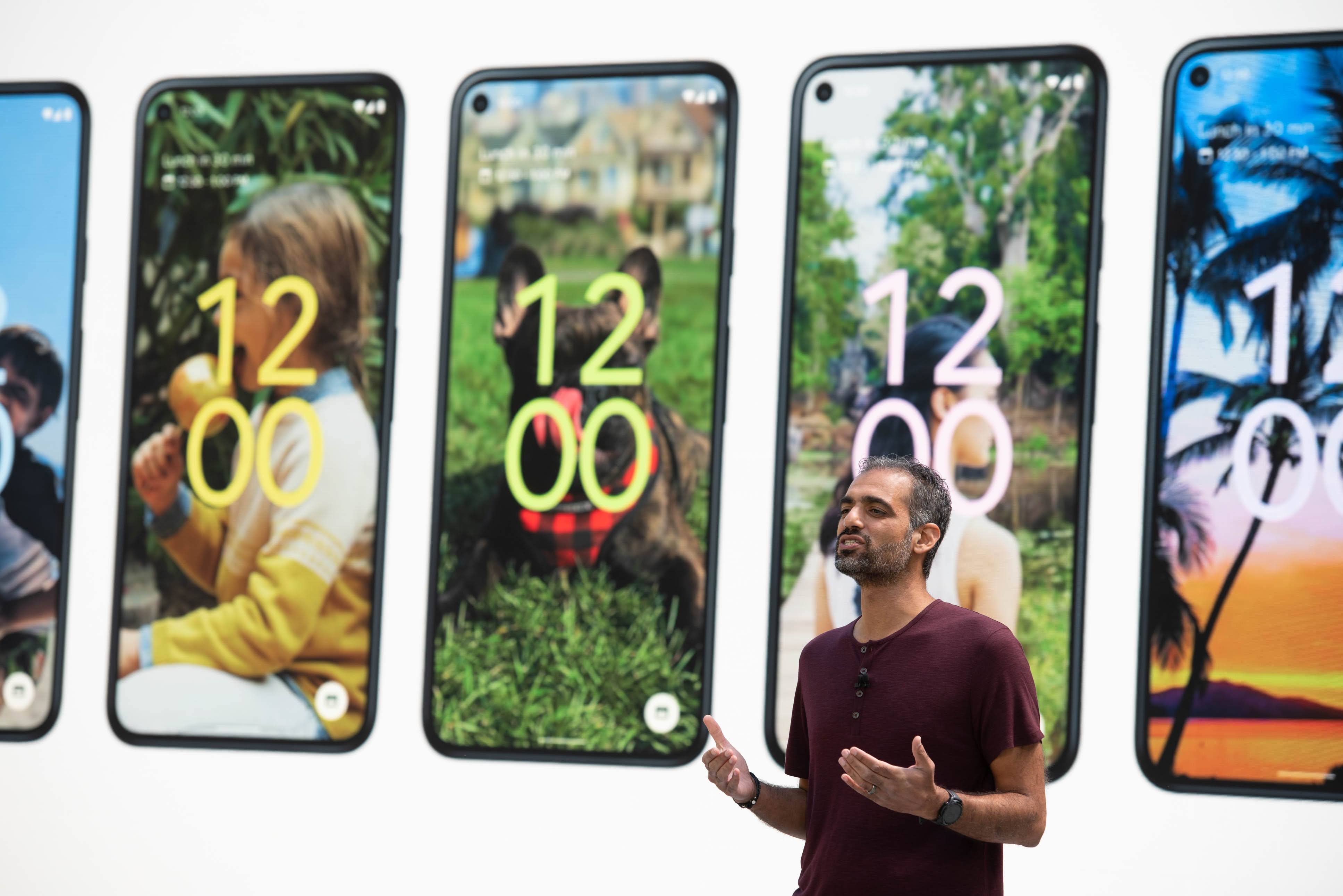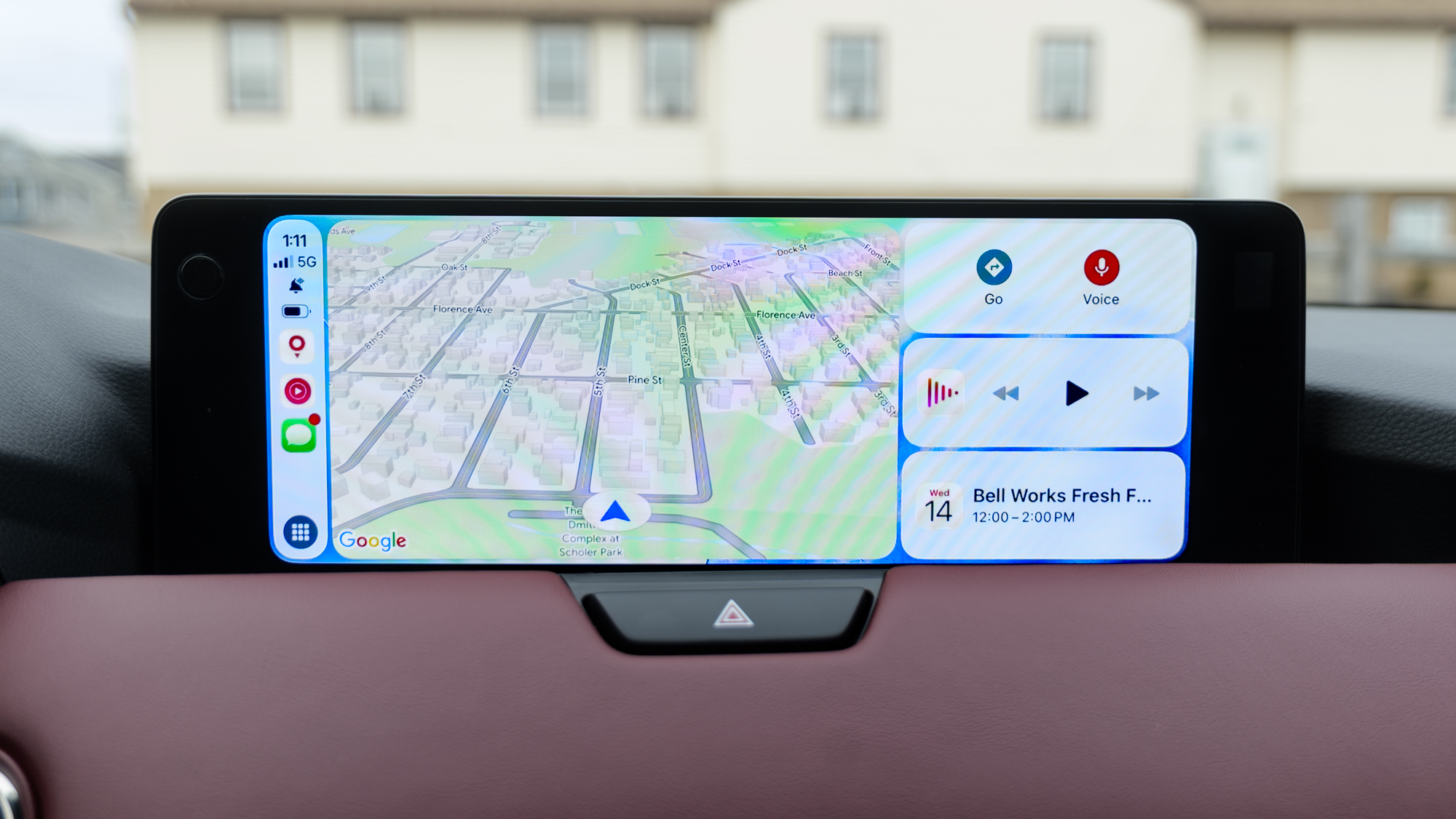Android 12 is trying to copy Apple’s walled garden — and that’s bad news
Google's recent Android 12 decision could be a sign it's copying iOS in the worst way

Here at Tom’s Guide our expert editors are committed to bringing you the best news, reviews and guides to help you stay informed and ahead of the curve!
You are now subscribed
Your newsletter sign-up was successful
Want to add more newsletters?

Daily (Mon-Sun)
Tom's Guide Daily
Sign up to get the latest updates on all of your favorite content! From cutting-edge tech news and the hottest streaming buzz to unbeatable deals on the best products and in-depth reviews, we’ve got you covered.

Weekly on Thursday
Tom's AI Guide
Be AI savvy with your weekly newsletter summing up all the biggest AI news you need to know. Plus, analysis from our AI editor and tips on how to use the latest AI tools!

Weekly on Friday
Tom's iGuide
Unlock the vast world of Apple news straight to your inbox. With coverage on everything from exciting product launches to essential software updates, this is your go-to source for the latest updates on all the best Apple content.

Weekly on Monday
Tom's Streaming Guide
Our weekly newsletter is expertly crafted to immerse you in the world of streaming. Stay updated on the latest releases and our top recommendations across your favorite streaming platforms.
Join the club
Get full access to premium articles, exclusive features and a growing list of member rewards.
Android 12 could be taking a leaf out of iOS' book with a recent decision to lock down a basic part of its UX.
As reported by XDA Developers, the share sheet - the little menu that pops up with apps and contacts when you press the share button - looks as if it's losing customizability. It's a small change that could reflect much bigger shifts in how Android works down the line, and ones that may prove unpopular with its biggest fans.
- Android 12 release date, beta, phone list and all the top features
- These are our best Android phones recommendations
- Plus: Ring now lets you see when cops ask for security cam video
Currently, Android allows developers and device makers to customize the look of the share sheet when used within their apps, and for users to download third-party share sheets to use instead. That stands in stark contrast to the iOS share sheet, which looks and behaves identically no matter where you access it from.
For Android 12, however, it looks like Google's no longer going to offer this freedom. When the developer of third-party share sheet Sharedr left a message on the IssueTracker for the Android Open Source Project complaining that his app didn't work with Android 12, a Google representative replied to him saying:
"We had never actually intended to allow apps to replace the share dialog, that Intent is for apps to launch the share dialog. Being able to replace the share dialog is also becoming increasingly impossible — you couldn’t implement the direct share part of the UI, nor the personal vs. work profile tabs in R, etc. This is just not something that is feasible to allow apps to replace."
There are some unimpressed responses to this in the remainder of the thread, but the bottom line is that there's no way around using Google's default share sheet in Android 12. As XDA points out, however, it's not clear whether this only applies to app developers, or if phone-maker versions of Android, such as Samsung's One UI or OnePlus' OxygenOS, will also be barred from making these changes. Either way, unless Google really shapes up the currently terrible and unreliable share menu, this could be a really annoying thing to lock down.
A bad omen?
Android has always been more open to user tinkering than iOS, thanks to its open-source core. Even though the share sheet is only a small part of the whole Android experience, it could indicate the start of a big change to assert Google as the final authority on Android's behaviour, rather than the caretaker role it currently fills.
Get instant access to breaking news, the hottest reviews, great deals and helpful tips.
The tempting part of so-called "walled gardens" like iOS and the Apple ecosystem is that it can lead to amazing user experiences where everything ties together logically, and software works in harmony with the hardware. But what gets lost is user choice and freedom to alter things to their personal preference, particularly if they have the confidence and knowledge to alter things behind the scenes. If Android 12 is to follow in iOS' path, then it may mean good things for the average Android phone owner, but not for its most dedicated users.
Blocking third-party developers is arguably bad enough, but if Google stops letting custom Android launchers making changes too, then this would be a tragedy. The individual character and feature sets of Android phone makers' takes on Android are important parts of the phone-buying experience. Limiting this capability for Samsung, OnePlus et al. would prove very unpopular with long-time users of these brands' devices, who are used to a company's unique set of optimizations.
We've still got a few months until the stable version of Android 12 starts rolling out to devices, so it's possible this story will develop more, or be joined by similar tales about other features. If this does mark the start of a trend, and without significant competition to offer a similar level of customizability, then Android developers and fans who currently enjoy the freedom to tinker will be left with nowhere to go.

Richard is based in London, covering news, reviews and how-tos for phones, tablets, gaming, and whatever else people need advice on. Following on from his MA in Magazine Journalism at the University of Sheffield, he's also written for WIRED U.K., The Register and Creative Bloq. When not at work, he's likely thinking about how to brew the perfect cup of specialty coffee.
 Club Benefits
Club Benefits










